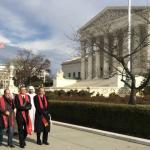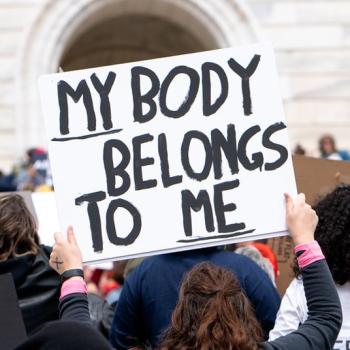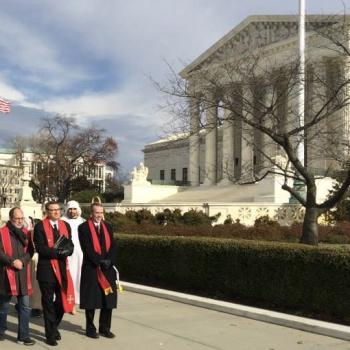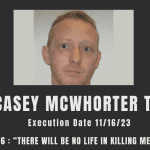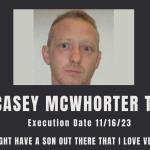Donald Trump and the extreme right wing of the Republican Party adhere to arbitrariness. It’s immoral, unethical, harmful, and dangerous to Americans. It is contrary to both the rule of law and biblical concepts. The Psalmist declares, “The King in his might loves justice. You have established equity; you have executed justice and righteousness in Jacob.” Equity, justice, and righteousness require fair, coherent, understandable, uniform rules, judgment, and consequences. Trump’s idiosyncratic, intensely personal, ad hoc propensities are a form of arbitrariness, the diametric opposite of equity and justice.
An Amateur Survey Of Government Forms
During my nearly thirty years living in or very near the seat of the U.S. federal government, I’ve personally engaged with numerous top-level elected and appointed officials. I’ve also campaigned for presidential candidates. And, in case you didn’t notice, I’ve spent considerable time with Supreme Court justices. In the process, I’ve learned a lot about governing and how the people involved look at their role in it.
On a much smaller scale, I’ve had my own experience governing. As “president” of two non-profits and serving on the boards of several others, not to mention a stint as an elected denominational official, I know what it is to serve constituents within a legal framework. In my case, my various offices’ prerogatives, powers, and duties were dictated and limited by bylaws and cannons rather than statutes and rulings. Still, civil authorities generally treat the rules that govern a non-governmental corporate entity as legally controlling.
So, while I’m an amateur, I think I know something about governing and governmental philosophy. I’m not alone. It seems with social media and Internet platforms, many people have opinions about how government should work. Plenty of comments I read on X, Facebook, and Instagram include accusations that this person or that person is a socialist, communist, anarchist, autocrat, fascist, Christian nationalist, or something else. (I’m always curious how many accusers can actually define the terms they pejoratively employ.)
The Real Issue
It’s not my intent here to exhaustively explain the various theories of government (and I have no expertise to do so) but rather to make the point that we all have our favorites. Some think democracy is the best system, wherein the majority rules. Others are “small r republicans” and believe representative government is safer and more orderly. Even in countries that have abolished or greatly diminished monarchy, monarchists often remain and tend to argue the absence of a single real or even titular ruler weakens the state. Then there are enablers of autocrats who think it’s in the country’s best interest to have an overpowering authoritarian, like a dictator, strongman, or, perhaps, “unitary executive.”
I’ve visited countries with nearly all these governmental forms in my travels. What concerns me more than the particular system is how it conducts itself in reference to the people it ostensibly serves. I’ve observed that the greatest threat to a population’s well-being is not necessarily a country’s governmental structure but how those in power deploy it. Do they operate in a predictable, equitable, and reasonable manner, or are their decisions and actions arbitrary?
The Threat Of Arbitrariness
Arbitrariness means rule by chance, whim, or impulse, not by necessity, reason, or principle. It is the opposite of the rule of law. It is also the opposite of the Christian understanding of the nature of God and the universe as deliberate, purposeful, and orderly. An arbitrary rule, policy, or practice has no standard or consistency; everything can change instantly. There is no measure, restraint, or accountability and possibility for correction.
When a state’s governmental authority rules arbitrarily, it brings its force to bear on the citizenry in capricious, unpredictable, disorganized, and chaotic ways. When people don’t know where the boundaries lay, or if they’re out of bounds, or when and if they violate a known or unknown rule, they are left in bondage to uncertainty and dread. When they can’t know what may happen to them in any given situation or what the penalties may or may not be, they cannot effectively defend themselves or even reach out for help.
Arbitrariness inflicts anxiety and fear, a form of domination and control.
Arbitrariness Has A Very Bad Record
History is replete with examples of fickle, unstable, and erratic potentates. The Bible is one historical source. From Pharoah to Herod, the unstable characters recorded there wreak havoc on the people under their charge. In more modern times, arbitrary rule has been perpetrated by the likes of Joseph Stalin, Adolf Hitler, Benito Mussolini, Mao Zedong, Fidel Castro, and Saddam Hussein.
Of course, such traits are not limited to political actors. Others in positions of authority and control do likewise, whether religious, civic, or cultural leaders–which brings me to the Trumpian Era. Donald Trump’s contradictory words and behavior have become legendary, and other influencers around him reflect his chaotic contradictions, including popular religious figures.
Perhaps the most consequential of Trump’s inconsistencies was in what he repeatedly told the public about the Coronavirus pandemic and what he said confidentially to well-known investigative reporter Bob Woodward. On February 2, 2020, Trump said in a news conference, “We pretty much shut it down coming in from China.” Five days later, he told Woodward on the phone, “It’s also more deadly than even your strenuous flu… This is deadly stuff.” Then, three days later, Mr. Trump said to the nation, “I think the virus is going to be—it’s going to be fine.”
If Trump’s incoherence were limited to just these few exchanges, perhaps we could excuse it. The COVID comments alone present epic examples of erraticism and are illustrative of much more. The National Institutes of Health, the National Archives, the Washington Post, the New York Times, Yahoo News, and many other news and information outlets have cataloged Trump’s inconsistencies.
The people surrounding Trump echo his incessant fluctuations, including his own son and principal spokesperson, Don Jr. While the senior Trump has said nothing “beats the Bible, ” and “We take the Bible all the way,” and Don Jr. sells a “Patriot Bible” on his website, the younger Trump completely dismissed a portion most important to most New Testament readers. Speaking to a largely evangelical conference audience, Don Jr. declared that Jesus’ teachings have “gotten us nothing.“
And on and on the contradictions go. Whether it’s Trump’s public policy pronouncements, his view of the Constitution, the law, law enforcement, the courts, abortion, political parties, specific individuals, his multitudinous lawyers, faith and Christianity, or America itself, it’s impossible to find a common thread through them. His statements and actions related to the above are utterly self-contradictory.
The Arbitrary Trump A Real And Present Danger
If these were simply the characteristics of a blustering billionaire, a clownish reality T.V. star, or even a political commentator, they might be maddening, but they wouldn’t be dangerous. However, this consummately arbitrary personality is a former president of the United States and commander-in-chief of the Armed Forces. He has had the final say on deploying the world’s most potent nuclear arsenal before and wants it again. Trump has been the country’s chief executive, including over the best-trained and best-equipped police agencies, not to mention the finest investigative and prosecutorial arms of the federal government.
Donald Trump could be all these things again–and worse. He has already told his most ardent constituents, “I am your warrior” and “I am your retribution.”
Arbitrariness is Donald Trump’s political M.O. As such, he is a “clear and present danger,” as conservative jurist par excellence J. Michael Luttig told Congress after the supremely disordered and incomprehensible mob violence and insurrection of January 6, 2021.
Arbitrariness is a form of terrorism–and any practitioner is, ipso facto, a terrorist.
Her officials within her
are roaring lions;
her judges are evening wolves
that leave nothing till the morning.
Her prophets are fickle, treacherous men;
her priests profane what is holy;
they do violence to the law.
- Zephaniah 3:3-4



